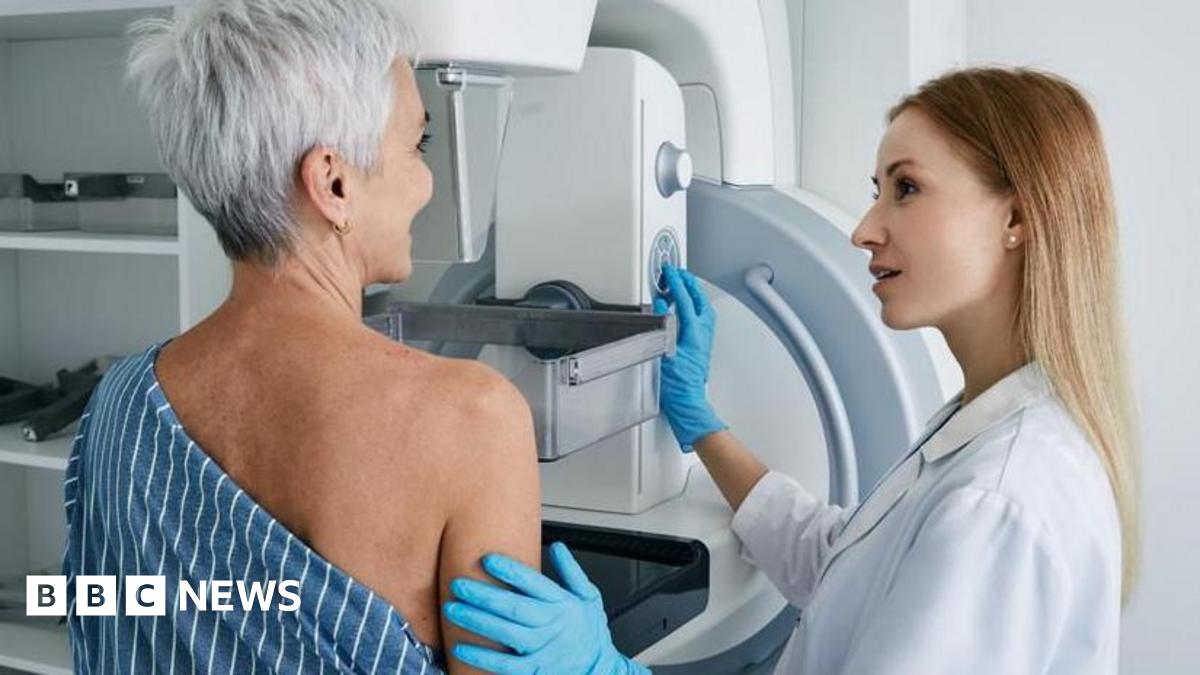Addressing Higher Cancer Risk: The Case For Enhanced Breast Screening In Women With Dense Breasts

Welcome to your ultimate source for breaking news, trending updates, and in-depth stories from around the world. Whether it's politics, technology, entertainment, sports, or lifestyle, we bring you real-time updates that keep you informed and ahead of the curve.
Our team works tirelessly to ensure you never miss a moment. From the latest developments in global events to the most talked-about topics on social media, our news platform is designed to deliver accurate and timely information, all in one place.
Stay in the know and join thousands of readers who trust us for reliable, up-to-date content. Explore our expertly curated articles and dive deeper into the stories that matter to you. Visit Best Website now and be part of the conversation. Don't miss out on the headlines that shape our world!
Table of Contents
Addressing Higher Cancer Risk: The Case for Enhanced Breast Screening in Women with Dense Breasts
Breast cancer is a leading cause of cancer-related deaths in women globally, highlighting the critical need for effective screening and early detection. However, for women with dense breast tissue, standard mammography faces limitations, leading to a higher risk of missed cancers. This article explores the growing consensus for enhanced breast screening options for women with dense breasts and the importance of advocating for better breast health awareness.
Understanding Dense Breasts and Their Impact on Mammography
Breast density refers to the amount of fibrous and glandular tissue compared to fatty tissue in the breast. Women with dense breasts have more fibrous and glandular tissue, making it harder for mammography to detect abnormalities. This is because dense tissue appears white on a mammogram, similar to the appearance of tumors, leading to potential masking and missed diagnoses. This increased density is a significant risk factor for breast cancer, independent of other risk factors.
The Limitations of Standard Mammography in Dense Breasts
Standard mammography, while a valuable tool, isn't always sufficient for women with dense breasts. Studies have repeatedly shown that mammograms have a lower sensitivity in detecting breast cancers in these women. This means that cancers can be present but missed during a standard mammogram, potentially delaying diagnosis and treatment. The earlier breast cancer is detected, the better the chances of successful treatment and improved survival rates.
Enhanced Screening Options: Beyond the Mammogram
Recognizing the limitations of mammography alone, healthcare professionals are increasingly advocating for additional screening methods for women with dense breasts. These include:
-
Breast Ultrasound: Ultrasound uses sound waves to create images of the breast tissue. It's particularly effective in detecting cancers in dense breasts as it can differentiate between dense tissue and tumors more effectively than mammography.
-
Breast MRI: Magnetic Resonance Imaging (MRI) provides highly detailed images of the breast, offering superior sensitivity in detecting breast cancer, especially in dense breasts. However, it's more expensive and has a higher false-positive rate compared to ultrasound.
-
3D Mammography (Tomosynthesis): This advanced mammography technique produces multiple images of the breast from different angles, providing a three-dimensional view. It helps to improve the detection of cancers hidden within dense tissue, offering better specificity than standard 2D mammography.
Advocating for Your Breast Health: What You Can Do
Knowing your breast density is crucial. Many women are unaware of their breast density until they receive their mammogram report. Ask your doctor about your breast density and discuss the possibility of supplemental screening if you have dense breasts.
-
Request a breast density notification: Many states now mandate notification of breast density results on mammogram reports. If your state doesn't have this requirement, advocate for it!
-
Discuss enhanced screening options: Talk openly with your doctor or radiologist about the risks and benefits of ultrasound, MRI, or 3D mammography. A shared decision-making approach is vital.
-
Maintain a healthy lifestyle: While dense breasts are a risk factor, you can still mitigate other risks by maintaining a healthy weight, exercising regularly, and limiting alcohol consumption.
Conclusion: Early Detection Saves Lives
The increased risk of missed cancers in women with dense breasts underscores the urgent need for enhanced screening options. By being proactive, understanding your breast density, and advocating for your health, you are taking vital steps toward early detection and improved outcomes in the fight against breast cancer. Don't hesitate to seek the advice of healthcare professionals and discuss the most appropriate screening strategy tailored to your individual circumstances. Early detection truly saves lives. Learn more about breast cancer awareness and prevention through resources like the .

Thank you for visiting our website, your trusted source for the latest updates and in-depth coverage on Addressing Higher Cancer Risk: The Case For Enhanced Breast Screening In Women With Dense Breasts. We're committed to keeping you informed with timely and accurate information to meet your curiosity and needs.
If you have any questions, suggestions, or feedback, we'd love to hear from you. Your insights are valuable to us and help us improve to serve you better. Feel free to reach out through our contact page.
Don't forget to bookmark our website and check back regularly for the latest headlines and trending topics. See you next time, and thank you for being part of our growing community!
Featured Posts
-
 Where To Stream South Park Paramount Deal And Hbo Maxs Uncertain Future
May 24, 2025
Where To Stream South Park Paramount Deal And Hbo Maxs Uncertain Future
May 24, 2025 -
 Find Out When Mickey 17 Hits Streaming Services Your Complete Guide
May 24, 2025
Find Out When Mickey 17 Hits Streaming Services Your Complete Guide
May 24, 2025 -
 Six Crucial I Phone Settings To Adjust After I Os 18 5 Update
May 24, 2025
Six Crucial I Phone Settings To Adjust After I Os 18 5 Update
May 24, 2025 -
 Taylor Swifts Second Encore What To Expect
May 24, 2025
Taylor Swifts Second Encore What To Expect
May 24, 2025 -
 Diddy Abuse Case Expert On Trauma Cross Examined In Court
May 24, 2025
Diddy Abuse Case Expert On Trauma Cross Examined In Court
May 24, 2025
